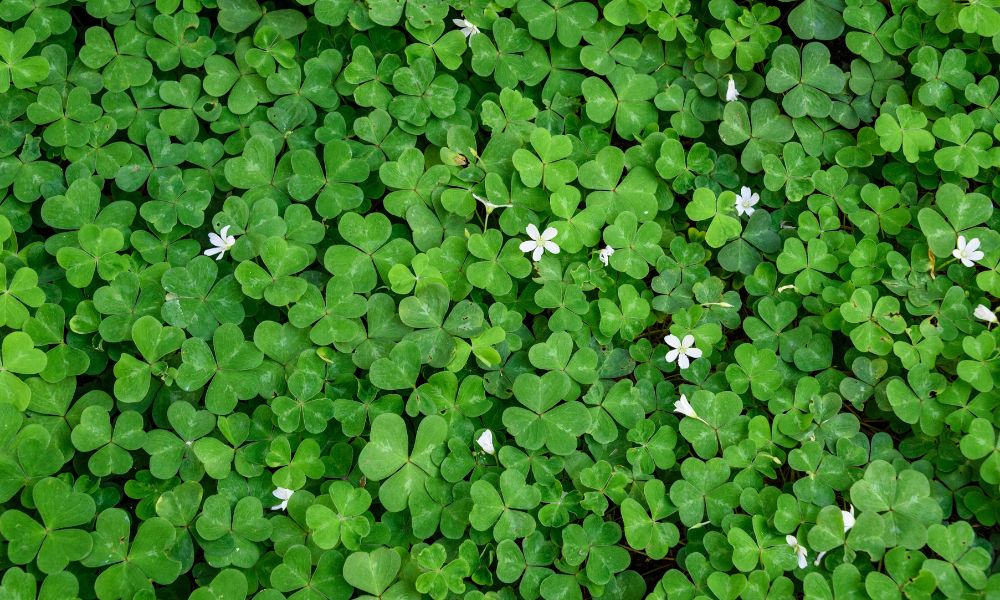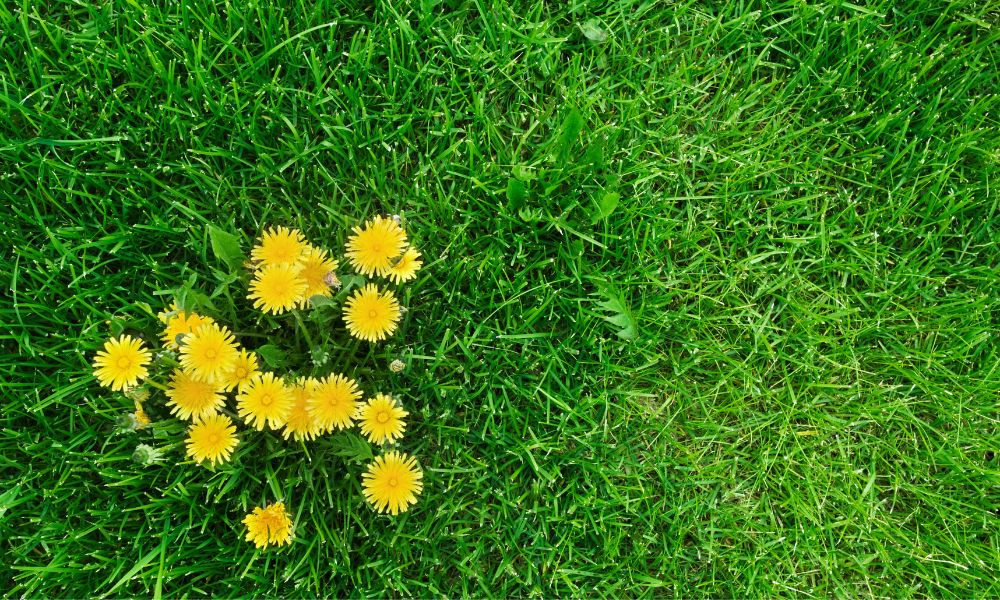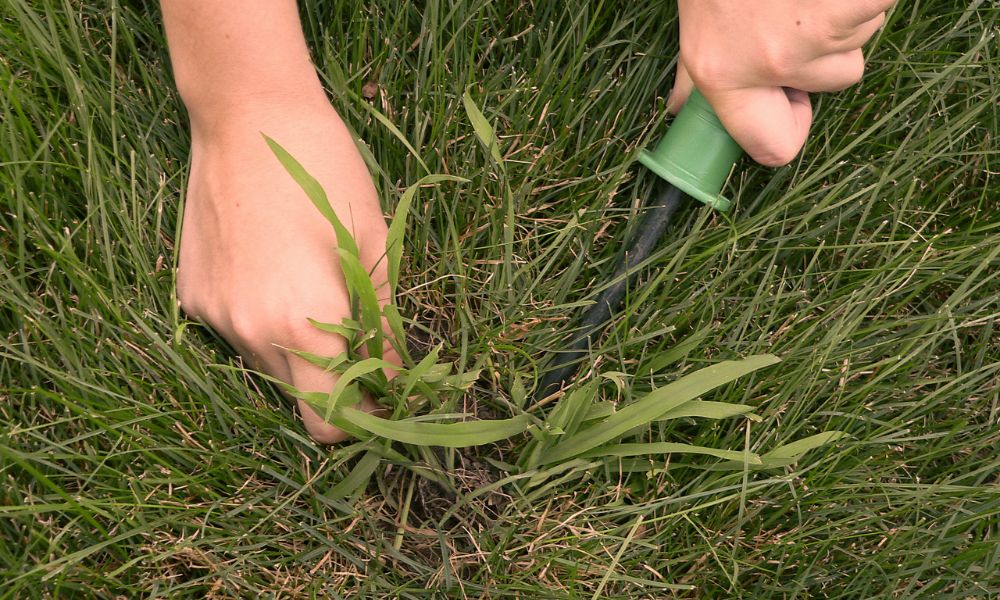he hot and humid climate in Atlanta offers a perfect haven a thriving lawn. Unfortunately, these conditions are also ideal for weeds. Maintaining a weed-free lawn can feel like an endless battle against these unwanted intruders. But fear not; by understanding your lawn’s unique challenges, identifying the culprits, and using the right techniques, you can eliminate weeds once and for all. Here are nine things to know about managing weeds in your Atlanta lawn.
Understand Your Lawn’s Needs
Before you start your weed control regimen, it’s essential to understand your lawn’s specific needs. Just like different types of grasses thrive under different conditions, one size does not fit all when it comes to lawn care. Begin by identifying the type of grass you have—whether it’s Zoysia, Bermuda, Fescue, or another variety commonly found in Atlanta. Each of these species has unique cultivation requirements. Understanding the preferred soil pH, light, and water needs of your grass will set the stage for successful weed management.
Identify Common Weeds
Identifying common weeds in your Atlanta lawn is a crucial step toward effective management. Here are some of the most prevalent weeds you might encounter:
- Crabgrass: This is a fast-growing annual weed that spreads quickly during the warm seasons. It’s known for its resilience and can be tough to eradicate once established.
- Dandelion: Famous for its bright yellow flowers, dandelions are perennials that can take over lawns if not controlled. They thrive in a variety of conditions.
- Clover: While some homeowners appreciate clover for its ability to fix nitrogen in the soil, this perennial can quickly become invasive, forming dense patches that compete with grass.
- Nutsedge: Often mistaken for grass, nutsedge is a persistent weed that prefers moist, poorly drained areas. It’s challenging to remove due to its underground tubers.
- Henbit: This annual weed is known for its purple flowers in early spring. It prefers cooler weather and can spread across lawns rapidly if not managed.
- Chickweed: Chickweed is a cool-season annual that can quickly blanket an area. It has small, star-shaped white flowers and thrives in moist, shady spots.
Knowledge truly is power when it comes to dealing with weeds. Atlanta is home to a host of common weeds, each presenting its own set of challenges. By learning to identify these intruders, you can tailor your control methods more effectively. Remember, the earlier you can identify and address a weed, the easier it is to control.

Maintain Healthy Soil
Ensuring your lawn’s soil is in optimal condition is a fundamental step in weed prevention and control. Healthy soil provides the right foundation for grass to grow vigorously and outcompete weeds. The pH level of your soil is crucial; most grasses prefer a slightly acidic pH. Atlanta’s native red clay soil can often be alkaline, so soil testing is advisable to understand its composition and make necessary amendments. Regular aeration, proper fertilization, and incorporation of organic matter can significantly improve soil health.
Mow at the Right Height
Mowing at the correct height is a simple yet effective way to discourage weeds from taking hold in your lawn. Taller grass shades the soil, preventing sunlight from reaching weed seeds and inhibiting their germination. Generally, you should mow warm-season grasses, like Bermuda, at a height of 1-1.5 inches, while you should mow cool-season grasses, like Fescue, at around 2-3 inches. Mowing too low can weaken the grass and allow weeds to establish. It’s a delicate balance, so keep your mower blade sharp and adjust the height accordingly.
Water Appropriately
Watering your lawn requires careful balance, especially in Atlanta’s hot summers. Overwatering can saturate the soil, promoting weed growth and potentially suffocating your lawn’s roots. Underwatering, on the other hand, can stress the grass, making it more susceptible to weeds and disease. The right watering strategy means infrequent but deep waterings that encourage deep root growth. A general rule of thumb is to provide about 1 inch of water per week, including rainfall.
Consider Natural Weed Control Methods
For those who prefer to steer clear of chemical solutions, natural weed control methods can offer a safe, eco-friendly alternative. These can include:
- Hand-pulling weeds before they set seed or spread.
- Applying organic herbicides that use natural ingredients like vinegar, salt, or essential oils to target weeds.
- Employing smothering techniques with mulches or physical barriers to prevent weeds from getting the light and space they need to grow.
Natural methods may require more effort and time but can be very effective, especially when used in combination with good lawn management practices.

Spot Treat Weeds
Spot treating weeds can save time and resources and promote the overall health of your lawn. Unlike blanket applications, spot treatments target specific problem areas, minimizing the use of herbicides and reducing any potential impact on the rest of your garden. A variety of weed control products are available, from selective herbicides that specifically target certain weed types to post-emergent herbicides designed to eliminate weeds after they’ve popped up.
Mulch Garden Areas
Mulching not only helps to retain moisture and regulate soil temperature but can also act as a barrier against weed growth in your garden areas. Organic mulches like wood chips, shredded leaves, or pine straw not only provide a tidy aesthetic but also contribute to the health of the soil as they break down. Aim for a mulch layer around 2-3 inches thick, being careful not to mulch too close to the base of your plants, which can encourage pests and diseases.
Seek Professional Help
Sometimes, despite your best efforts, weeds can gain the upper hand. When this happens, turning to a reputable lawn treatment company can be the best course of action. These professionals have the knowledge, tools, and experience to diagnose and treat both common and stubborn weed issues in Atlanta’s unique environment. Look for a company that prioritizes sustainability and incorporates an approach that minimizes chemical use.
A healthy lawn is not just a picturesque addition to your Atlanta home; it’s a living, breathing ecosystem that requires thoughtful management. With our help in this guide, you can effectively manage the weeds in your Atlanta lawn. Remember, weeds may be persistent, but armed with the right information and tools, you can be unstoppable.
For more insights and personalized guidance, contact TurfPride today to address the specifics of managing weeds in your Atlanta lawn. Our professional and knowledgeable staff is ready to weed out pesky intruders and make sure your lawn looks immaculate.

